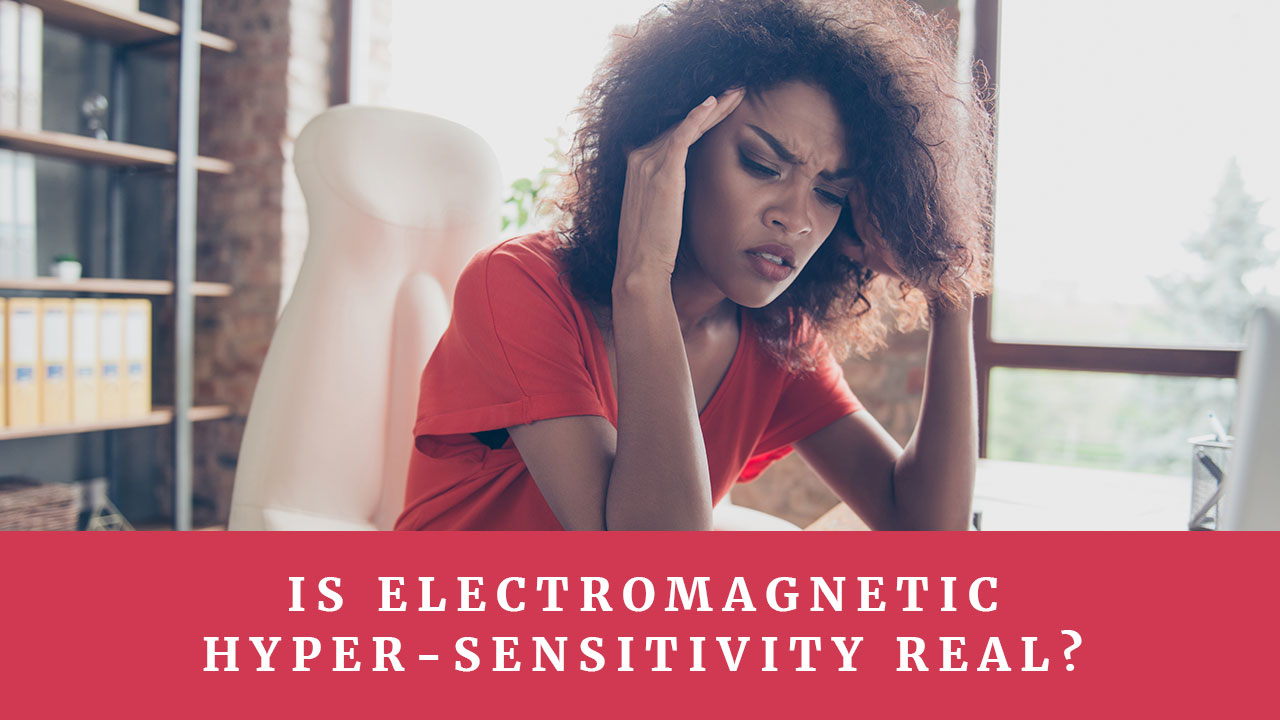Electromagnetic field sensitivity (EMF sensitive) is a condition in which an individual has a high sensitive to electromagnetic fields around him. It isn't restricted to situations in which there is no electric current, but may affect those who have an open circuit, or who are in contact with electromagnetic field for prolonged periods of time. The Environmental Health Center in Dallas is well-versed in the reasons behind EMF sensitivity and is able to assist patients with their symptoms. The center is able to conduct tests to determine whether someone is susceptible to EMF exposure. This is possible using the latest technology to measure heart rate variation.
The IEI-EMF sensitivities are a sign of exposure to emf
Electromagnetic contamination and the magnetic fields that result from it have been linked to the development of a variety of diseases. The symptoms are often difficult to identify and some individuals have reported a range of symptoms. They could be the result of a pre-existing condition or a response to stress caused by the prospect of exposure to large amounts of electromagnetic fields. Regardless of emf sensitivity symptoms , the symptoms can be extremely debilitating for individuals who experience these. However, the scientific community isn't quite sure of the extent to which the IEI sensitive syndrome is, and how widespread it is.
It is not a symptom of electrohypersensitivity
While the symptoms of electrohypersensitivity and EMF sensitivity are similar, there are some key differences. Electromagnetic hypersensitivity is often not understood, and the symptoms can differ widely. It is crucial to receive an accurate diagnosis in order to determine the root cause and possible treatments.
electromagnetic hypersensitivity symptoms is not a symptom of EHS
Although EMF sensitivities are not a defining characteristic of EHS however, it is frequently associated with the disorder. In fact, some studies suggest that the condition may be related to environmental and genetic causes instead of a particular physical problem. However it is still necessary to conduct more research to make definitive conclusions.
It can be confusing
The symptoms of EMF sensitivities can be confusing. Most EHS sufferers aren't able to attribute their condition to a specific source. They seek medical treatment, but are unable to obtain a convincing diagnosis. The result is that they could be suffering from some sort of mental disorder that can lead to an increase in feelings of anxiety and helplessness.
It can be terrifying
The effects of electromagnetic fields, or EMFs, can be terrifying. Some people report experiencing unpleasant symptoms after exposure to these electromagnetic fields, which are generated by devices such as Wi-Fi routers as well as mobile phones. The symptoms vary in severity, and in extreme cases, individuals have to avoid electric devices and fluorescent lighting. In extreme cases, sufferers may even withdraw from the world of modernity, living in isolated communities that are known as "EMF-free zone".
It is a good supplement to production of melatonin.
The most important hormones found in our bodies, melatonin, is synthesized by the pineal gland. It is involved in numerous functional aspects of life, including the regulation of circadian rhythm. However, its role as a protective factor from non-ionizing fields of electromagnetic radiation has been in doubt mostly due to the inconsistency in results from different studies. Our knowledge of the hormone's protective mechanisms is mostly based on our understanding of the mechanism that it protects your body from the oxidative stress produced by RF/ELF exposure.
It can help with autonomic nervous system changes

A number of studies demonstrate that EMF sensitivity can affect your autonomic nervous. People suffering from the condition may experience altered autonomic responses and may experience digestive issues. Some patients have problems digesting food correctly or feel sick when they eat a smaller portion. Others may experience changes in body temperature, and have heat intolerance. These disorders are often due to other health issues, such as diabetes.
